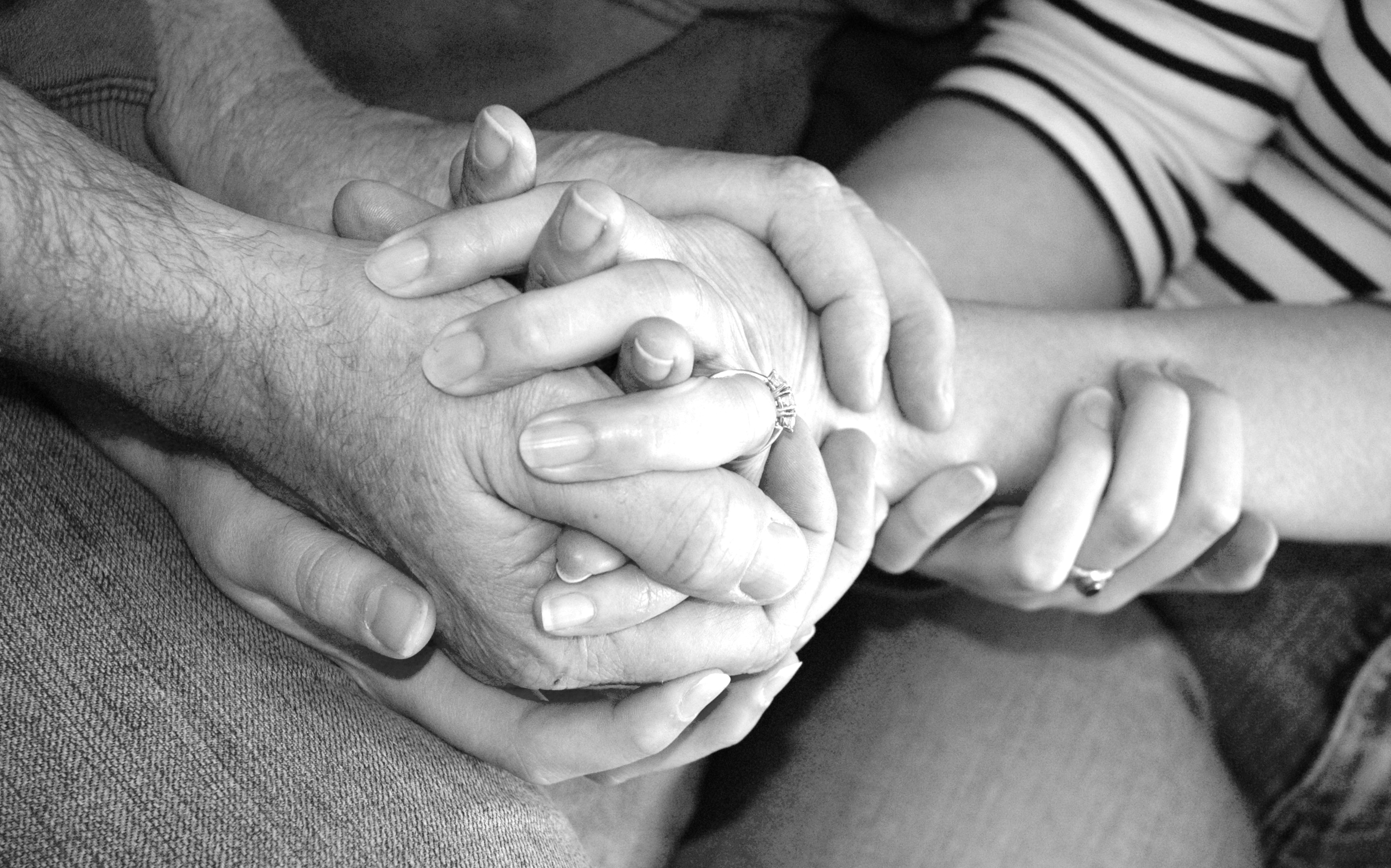
Grief and Loss: Geraldine Brooks’ Journey Through Mourning
Grief and loss are profound emotional experiences that often leave an indelible mark on our lives. When we encounter the death of a loved one, we enter uncharted territory, navigating through various stages of grief that can feel overwhelming. Understanding grief stages is crucial for anyone trying to cope with such heartache, as it offers insight into the tumultuous journey of healing from loss. Sharing personal stories of loss can also provide solace, reminding us that we are not alone in our suffering. Within these narratives, many find strength, learning how to cope with grief through the cathartic process of writing about their experiences.
The experience of mourning and the ache of separation can be incredibly isolating, yet they are universal aspects of the human experience. After the passing of someone dear, individuals often struggle to process the waves of emotion that wash over them, typifying the journey through sorrow and anguish. The stages one must traverse to find solace can feel like a labyrinth, filled with countless moments of reflection and self-discovery. Narratives shared in the wake of such a loss echo a communal understanding of heartache and healing, where spaces offer room for individual stories to flourish. By exploring various perspectives on grief and loss, we delve deeper into the methodologies of dealing with emotional pain, helping ourselves and others find a pathway toward resilience.
Understanding the Stages of Grief
Grief is an intricate journey, often characterized by a series of stages that people go through following a significant loss. Although many are familiar with the five stages of grief proposed by Elisabeth Kübler-Ross—denial, anger, bargaining, depression, and acceptance—these stages are not strictly linear. Understanding that grief can oscillate between these stages helps individuals cope more effectively. When one experiences profound loss, such as the tragic passing of a loved one, they may find themselves traversing back and forth between acceptance and denial, or wrestling with anger before moving towards mourning.
Recognizing these stages can provide clarity during turbulent times. For example, an individual might experience anger when they grapple with the unfairness of a sudden loss, only to find moments of peace in memories shared. Embracing the grief stages allows those affected to validate their feelings, no matter how conflicting or overwhelming they may seem. It’s essential to give oneself permission to feel and express these emotions, understanding that healing takes time and personal reflection.
Coping Strategies for Grief and Loss
Navigating through grief and loss can seem daunting, but there are various strategies to help manage the emotional turbulence that accompanies losing a loved one. Engaging in creative outlets such as writing or art can serve as an effective means of processing grief. For many, writing about grief—whether through journaling personal memories, composing letters to the deceased, or even crafting poetry—provides a therapeutic release. This form of expression can allow individuals to make sense of their feelings and reflect upon their journey in a healing manner.
Additionally, seeking community or support groups can foster a sense of understanding and connection. Sharing personal stories of loss with those who have experienced similar circumstances not only creates a comforting environment but also allows for shared experiences to lighten the emotional burden. Many find solace in hearing others’ journeys through their grief, realizing they’re not alone in their struggles.
The Role of Personal Stories in Healing
Personal stories of loss serve as powerful testimonies of love and remembrance. When writers share their experiences, they illuminate the healing process that others may feel is too intimate or isolating to express. Writing about one’s grief not only assists the writer in processing their feelings but also creates a bridge of understanding for others who may feel the same pain. The cathartic act of storytelling can validate emotions that might otherwise go unacknowledged in everyday conversation.
Moreover, these narratives can inspire hope and resilience. Individuals reading these stories often find solace in the shared experience of loss, prompting reflections on their journey towards healing. Sharing personal experiences can also establish a sense of community, allowing individuals to come together and support one another through their grief journeys.
Finding Space for Grief in Daily Life
In the throes of daily responsibilities and societal expectations, it’s easy to suppress one’s grief. Many adopt the facade of normalcy, pushing through personal pain in a quest to fulfill roles in their families or workplaces. However, carving out intentional space to grieve is essential for emotional well-being. This could mean setting aside dedicated time to reflect, visiting places that evoke memories or even simply allowing oneself moments of solitude to feel and process sorrow.
Integrating small rituals into daily life can also serve to honor one’s grief. This may include lighting a candle in reverence of the lost loved one, dedicating time for quiet reflection, or participating in activities once enjoyed together. Creating an environment where grief is acknowledged helps individuals reconnect with their emotions and fosters healing. In essence, accepting grief as a natural part of life invites growth and the possibility for joy alongside sorrow.
The Importance of Acknowledging Loss
Acknowledging loss is a fundamental aspect of the grieving process. When individuals deny or minimize their feelings, they can inadvertently prolong their suffering. It is crucial to confront the reality of loss, recognizing that it’s okay to feel sad, angry, or confused. Conversations surrounding loss can often feel taboo; still, embracing these discussions enables a deeper understanding of one’s journey through grief.
Verbalizing feelings about loss helps to normalize the pain, letting others know that not only is it acceptable to grieve, but it is also an essential part of healing. Open dialogues foster empathy, enabling people to share their journeys while learning from others. Through acknowledgment, individuals can begin to craft a narrative that honors their loved ones, creating pathways toward recovery and remembrance.
Embracing the Healing Process after Loss
Healing from loss is not a linear path; rather, it resembles a tapestry woven from memories, love, and moments of grief. Embracing this healing process requires patience and kindness towards oneself. Individuals may linger in their sorrow or find joy, and that’s part of the journey. Allowing oneself the grace to heal can transform the experience of loss into a testament to the love that was shared.
Practicing self-care during this time is vital. Whether through engaging in therapy, joining support groups, or seeking solace in nature, nurturing oneself can help rejuvenate the spirit after a devastating loss. The journey may be complex, but prioritizing well-being through self-compassion and gentle reflection promotes personal growth and recovery.
The Power of Writing in Processing Grief
Writing about grief can be a transformative outlet for understanding and processing emotions. Whether through journaling, poetry, or essays, putting pen to paper allows individuals to articulate their pain and celebrate the lives of those they’ve lost. The act of writing not only provides clarity but also serves as a sacred space for releasing pent-up emotions that may feel overwhelming.
Furthermore, sharing written reflections with others can deepen connections and foster healing, not only for the writer but for those who read their words. Writing becomes an avenue to honor memories, echoing the sentiments of love that continue to linger. In many ways, written expressions of grief become living tributes to the resilience of the human spirit in the face of loss.
Creating a Personal Grief Ritual
Creating a personal grief ritual offers an opportunity to honor the life of a loved one and acknowledge the impact of their absence. Rituals can take many forms, from lighting a candle each evening to creating a special place filled with memories that evoke treasured moments. It’s essential that the ritual resonates personally, providing comfort while honoring the unique bond shared between the individual and their loved one.
These rituals can serve as touchstones during moments of sadness, prompting individuals to remember and celebrate their loved ones even as they navigate their grief. Over time, these personal practices can enrich the healing process, turning grief into a meaningful journey of remembrance and love.
The Role of Nature in Healing Grief
Nature can play a powerful role in the healing process following a significant loss. Many find solace in the beauty of the natural world as it allows for reflection, peace, and the opportunity to connect with larger themes of life and death. Whether walking through a quiet forest, sitting by a lake, or tending to a garden, nature provides a therapeutic backdrop for grappling with grief and loss.
Engaging with nature encourages a sense of grounding, allowing individuals to breathe and reconnect with their feelings. This connection often facilitates introspection, enabling individuals to explore their grief in a peaceful setting. Embracing the natural world not only inspires healing but also fosters hope, reminding those in grief that life continues, ebbing and flowing like the seasons.
Frequently Asked Questions
How can I cope with grief after losing a loved one?
Coping with grief involves allowing yourself to feel the pain and expressing your emotions. Techniques such as journaling, talking to friends, seeking therapy, and engaging in supportive communities can be helpful. Understanding grief stages can also provide a framework for your feelings, making it easier to navigate your emotional journey.
What are the stages of grief and how can they help in healing from loss?
The stages of grief—denial, anger, bargaining, depression, and acceptance—provide a way to understand your emotional responses after a loss. Recognizing these stages can aid in healing from loss by normalizing your feelings and helping you find coping strategies that resonate with your personal grief experience.
How can writing about grief facilitate healing?
Writing about grief can be a therapeutic outlet, allowing you to articulate your feelings and reflect on your memories. This process can provide clarity and help organize the chaos of emotions, fostering understanding and acceptance as you heal from loss.
Can personal stories of loss help others cope with their grief?
Yes, personal stories of loss can be incredibly impactful for those grieving, as they help to normalize unique experiences and emotions. Sharing these narratives creates a sense of community, allowing others to feel less isolated in their grief and encouraging open discussions about difficult feelings.
What support systems are available to provide assistance with understanding grief?
Support systems such as grief counseling, support groups, or online forums can offer understanding and resources for those dealing with grief. Engaging with others who have faced similar experiences can be invaluable in navigating your own journey and understanding the complexities of grief.
| Key Points |
|---|
| Geraldine Brooks’ poignant narrative of grief after losing her husband, Tony Horwitz, focuses on the disorienting and chaotic experience of sudden loss. |
| She recounts the moment she received the tragic news and the subsequent emotional turmoil, highlighting the struggle to comprehend the loss and the loneliness that accompanied it. |
| The piece reflects on societal expectations around grief, expressing a desire for space to fully honor the intensity of her feelings without the pressure to perform normalcy. |
| Brooks emphasizes the importance of allowing oneself to grieve deeply as a natural expression of love, using the metaphor of ‘grief as praise’ to convey the depth of her emotional experience. |
| The narrative culminates in a journey to Flinders Island, where she seeks solitude to face her grief away from societal constraints, underscoring the personal nature of mourning. |
Summary
Grief and loss are profoundly intricate experiences that deeply affect our emotional well-being. Geraldine Brooks’ exploration of her husband’s sudden passing reveals the chaotic and isolating nature of grief. It emphasizes the necessity of taking the time to honor one’s feelings and the journey of mourning without societal pressures. By embracing grief as an acknowledgment of love, Brooks illuminates the path towards healing, encouraging others to understand that grief is a personal and deeply individual journey.

